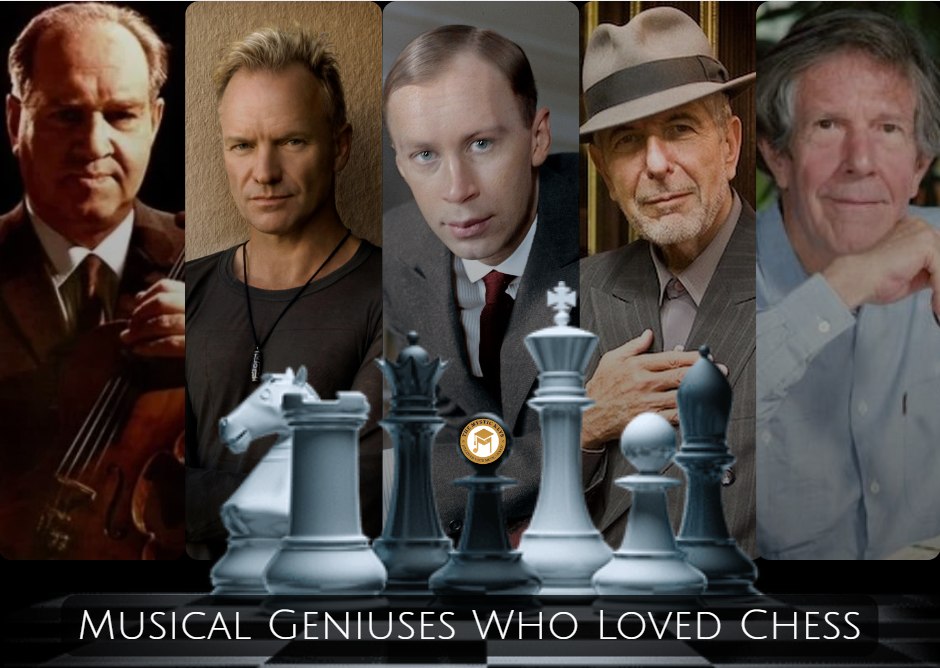Musical Geniuses Who Loved Chess | Melodies Meet Moves
Music and chess — two worlds that seem vastly different yet share a profound connection. Both require strategy, foresight, improvisation, and deep concentration. While one dances through the auditory senses, the other unfolds across a checkered battlefield. Yet, many musical geniuses who loved chess have been irresistibly drawn to the game of kings. This blog explores those iconic artists who excelled in music and held a deep passion for chess, revealing the often-overlooked synergy between the two.

Why Do Musicians Love Chess?
Musicians love chess because both activities engage similar parts of the brain. These two disciplines require:
Pattern recognition – Musicians identify melodic motifs, while chess players recognize tactical combinations.
Memory skills – Musicians memorize pieces; chess players recall opening lines and endgame strategies.
Concentration and focus – Both demand mental stamina during performance or gameplay.
Creativity and improvisation – Whether composing music or planning a chess attack, both involve imagination and intuition.
Let’s now meet the iconic artists who bridged these two fascinating worlds.
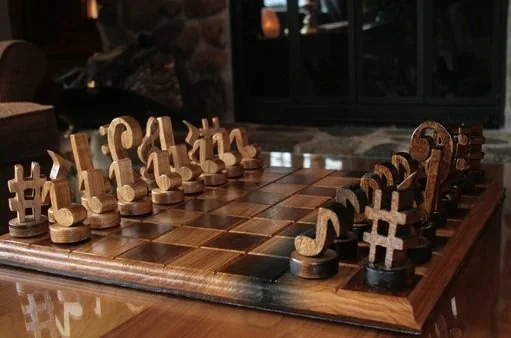
Sergei Prokofiev Played Chess with a World Champion
Russian composer Sergei Prokofiev, best known for Peter and the Wolf and Romeo and Juliet, passionately played chess throughout his life. He regularly challenged top chess players, including the legendary José Raúl Capablanca, and even beat him in a casual game.
Prokofiev didn’t just play for fun—he studied the game deeply and considered it just as important as composing. He believed both music and chess required imagination, structure, and elegance. His intricate compositions reflect the strategic thinking he applied on the chessboard.
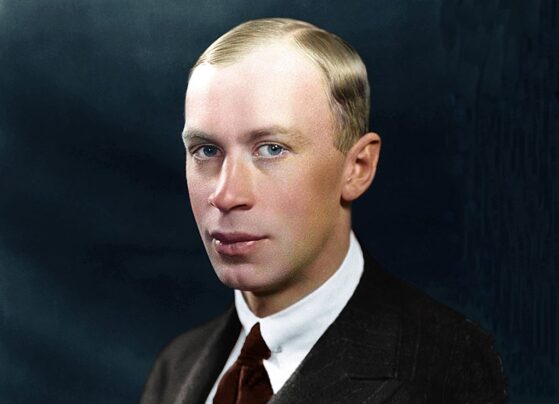
David Oistrakh Balanced the Violin and Chessboard
Virtuoso violinist David Oistrakh not only performed masterpieces by Brahms and Tchaikovsky but also engaged deeply in chess. As a prominent Soviet artist, he played regularly with chess grandmasters like Mikhail Tal and David Bronstein.
Oistrakh valued chess as a mental exercise that sharpened his focus and deepened his understanding of musical phrasing. His ability to build emotional intensity in music echoed the strategic buildup of a powerful chess position.

Leonard Cohen Found Peace in Chess
Iconic singer-songwriter and poet Leonard Cohen embraced chess during his years of spiritual retreat at Mount Baldy Zen Monastery. He played the game daily, often for hours, and used it to ground himself.
Cohen once said, “Chess is the only activity I know where I can be completely absorbed without the residue of anxiety.” Chess offered the stillness and clarity he also sought in his poetic and musical work.
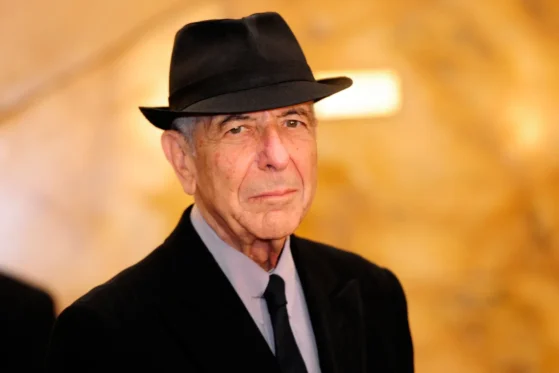
Sting Uses Chess to Center His Mind
Sting, the voice behind hits like Roxanne and Fields of Gold, plays chess as a mental exercise and source of relaxation. During his tours with The Police, he often played backstage to calm his nerves and stay focused.
He compares music and chess as disciplines that reward preparation, anticipation, and calculated risk. His sophisticated songwriting shows the same layered thinking that chess encourages.
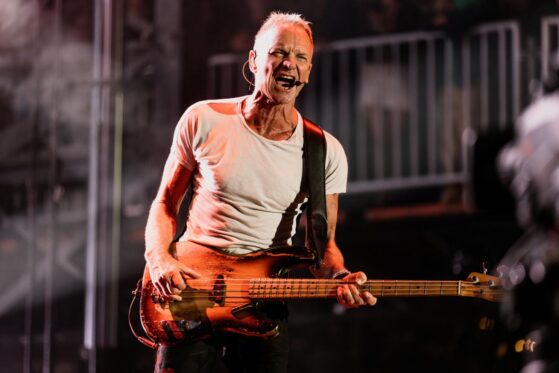
John Cage Turned Chess Into a Musical Performance
Avant-garde composer John Cage didn’t just play chess—he made it part of his music. In 1968, Cage collaborated with artist Marcel Duchamp on Reunion, a live performance where every chess move triggered musical and lighting changes.
Cage used chess to explore randomness and structure, reflecting his approach to experimental music. He viewed chess not just as a game, but as an extension of creative possibility.
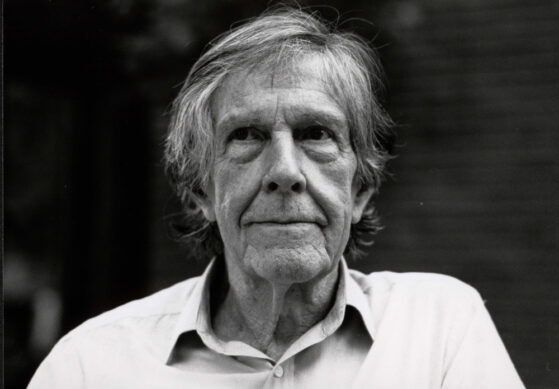
Ray Charles Mastered Chess Without Sight
Despite losing his vision as a child, Ray Charles became an avid chess player. He used a tactile chessboard with raised squares and textured pieces to play by touch.
Ray Charles found a deep connection between chess and music, saying both required structure and emotional control. Just as he mastered the piano, he trained his mind to excel on the chessboard, proving that creativity and logic go hand in hand.
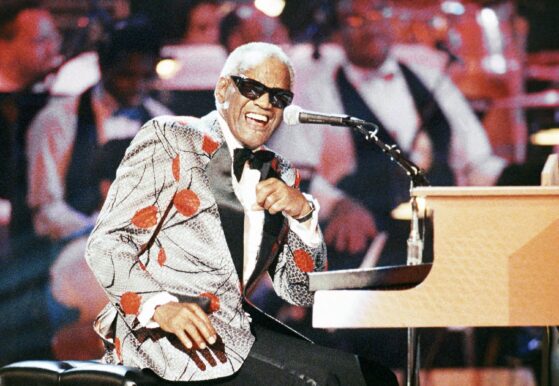
Frank Zappa – Musical Anarchist and Chess Strategist
Rock legend Frank Zappa, known for his complex compositions and sharp intellect, regularly played chess during tours and studio sessions. His music often featured unexpected shifts and unconventional forms—much like the unpredictable tactics in chess.
Zappa viewed both music and chess as systems of infinite expression. He approached chess as he did composition: with precision, curiosity, and wit.
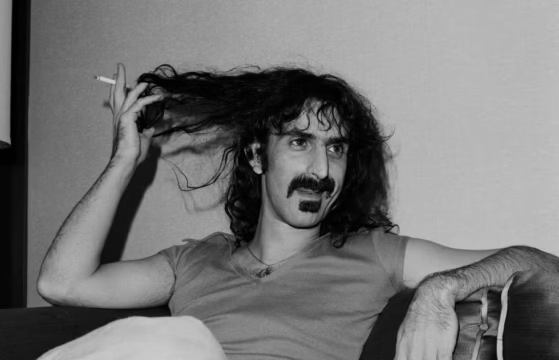
Lera Auerbach Composed and Competed in Chess
Contemporary composer Lera Auerbach started as a child prodigy in both music and chess. She competed in youth chess tournaments and later became an internationally acclaimed pianist and composer.
Auerbach compares the structure of music to the phases of a chess game—opening, middlegame, and endgame. She believes chess helps her make better artistic choices by teaching strategy, patience, and timing.
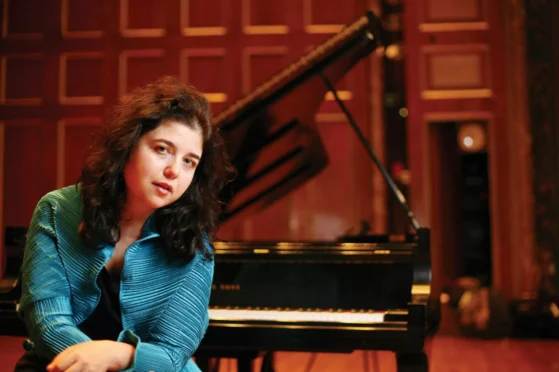
Duke Ellington Played Chess to Inspire Jazz
Jazz legend Duke Ellington played chess frequently during his travels and recording sessions. He encouraged band members to join him, believing it improved their improvisational skills.
Ellington saw chess as a parallel to jazz—both rely on spontaneous creativity within a structured framework. His dynamic compositions reflect the same sense of surprise and control that defines strong chess play.
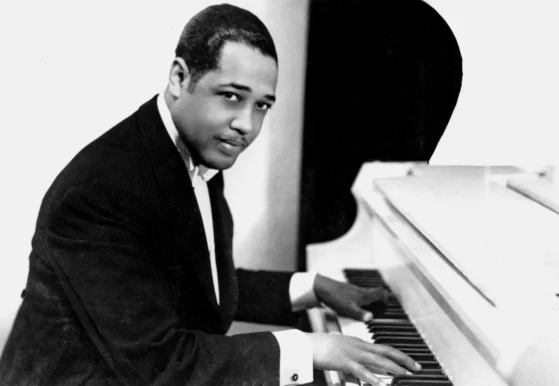
Johann Sebastian Bach – Master of Musical Logic
Though no historical records directly confirm Bach’s engagement with chess, scholars often draw comparisons between his compositions and chess problems. The fugues and counterpoint in works like The Art of Fugue exhibit the same recursive logic and layered structure found in complex chess puzzles.
Bach’s music often features multiple independent voices, each operating within its own rules, yet harmonizing as a whole — just like chess pieces working independently toward a unified strategy.
Whether or not Bach played chess, his mind certainly thought like a master.
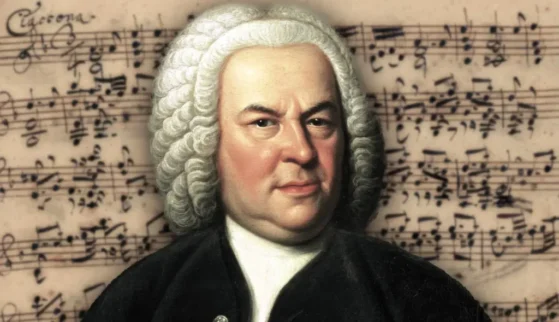
Final Thoughts | Chess and Music – Two Sides of the Same Genius
The chessboard and the grand piano might sit in different corners of a room, but they challenge the same mind. They both reward discipline, imagination, and patience. Musical geniuses who loved chess are not anomalies — they’re natural extensions of a mind that seeks complexity, beauty, and balance.
So, next time you hear a symphony or play a quick blitz game online, remember — you’re not just witnessing skill. You’re experiencing art, strategy, and deep thinking converging in the most timeless way.
Ready to explore this harmony for yourself? Join The Mystic Keys and let your love for music and intellect thrive together.
For more information and exciting resources about learning music, visit our website at The Mystic Keys. For more music content and exciting offers follow us on
Facebook, Instagram, YouTube, LinkedIn, Twitter, Pinterest, and Threads,


